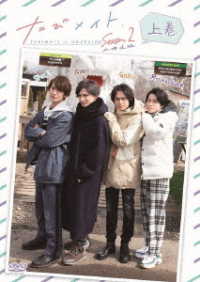- ホーム
- > 洋書
- > 英文書
- > History / World
Full Description
This book examines the impact place and displacement can have on the composition and interpretation of Western art music, using as its primary objects of study the work of István Anhalt (1919-2012), György Kurtág (1926-), and Sándor Veress (1907-92). Although all three composers are of Hungarian origin, their careers followed radically different paths. Whereas, Kurtág remained in Budapest for most of his career, Anhalt and Veress left: the former in 1946 and immigrated to Canada and the latter in 1948 and settled in Switzerland. All three composers have had an extraordinary impact in the cultural environments within which their work took place. In the first section, ""Place and Displacement,"" contributors examine what happens when composers and their music migrate in the culturally complex world of the late twentieth century. The past one hundred years produced record numbers of refugees, and this fact is now beginning to resonate in the study of music. As Anhalt himself forcefully asserts, however, not all composers who emigrate should be understood as exiles. The first chapters of this book explore some of the problems and questions surrounding this issue.
Essays in the second section, ""Perspectives on Reception, Analysis, and Interpretation,"" look at how performing acts of interpretation on music implies bringing the time, place, and identity of the musician, the analyst, and the teacher to bear on the object of study. Like Kodály, Kurtág considers his work to be ""naturally"" embedded in Hungarian culture, but he is also a quintessentially European artist. Much of his production - he is one of the twentieth century's most prolific composers of vocal music - involves the setting of Hungarian texts, but in the late 1970s his cultural horizons expanded to include texts in Russian, German, French, English, and ancient Greek. The book explores how musicologists' divergent cultural perspectives impinge on the interpretation of this work.
The final section, ""The Presence of the Past and Memory in Contemporary Music,"" examines the impact time and memory can have on notions of place and identity in music. All living art taps into the personal and collective past in one way or another. The final four chapters look at various aspects of this relationship.
Contents
List of Examples
List of Plates and Figures
List of Tables
Acknowledgements
Introduction Friedemann Sallis
First Word
1 István Anhalt: A Character Sketch John Beckwith (University of Toronto)
2 Kurtág, as I Know Him Gergely Szokolay
3 ""A Kind of Musical Autobiography"": Reading Traces in Sándor Veress's Orbis tonorum Claudio Veress
Place and Displacement
4 Of the Centre, Periphery; Exile, Liberation; Home and the Self István Anhalt (Queen's University)
5 István Anhalt's Kingston Triptych Robin Elliott (University of Toronto)
6 István Anhalt's The Tents Of Abraham: Where Music Cannot Heal, Let It Be Restored William Benjamin (University of British Columbia)
7 Which Displacement? Tracing Exile in the Postwar Compositions of István Anhalt and Mátyás Seiber Florian Scheding (University of Southampton)
8 Letters to America Rachel Beckles Willson (Royal Holloway, University of London)
9 Roots and Routes: Travel and Translation in István Anhalt's Operas Gordon Smith (Queen's University)
10 Le fonds István Anhalt (MUS 164) à Bibliothéque et Archives Canada : auto-construction du compositeur et rôle du lieu dans son oeuvre Rachelle Chiasson-Taylor (Bibliothéque et archives Canada)
Perspectives on Reception, Analysis, and Interpretation
11 Sewing Earth to Sky: István Anhalt and the Pedagogy of Transformation Austin Clarkson (York University)
12 György Kurtág's Játékok: A ""Voyage"" into the Child's Musical Mind Stefano Melis (Conservatorio di musica ""L. Canepa"" di Sassari)
13 Arracher la figure au figuratif: la musique vocale de György Kurtág Alvaro Oviedo (Université Paris 8, Vincennes Saint-Dénis)
14 Dirges and Ditties: György Kurtág's Latest Settings of Poetry by Anna Akhmatova Julia Galieva-Szokolay (Royal Conservatory of Music, Toronto)
15 Interpreting György Kurtág and George Crumb: Through the Looking Glass Dina Lentsner (Capital University, Columbus, Ohio)
The Presence of the Past and Memory in Contemporary Music
16 György Kurtág et Walter Benjamin : considérations sur l'aura dans la musique Jean-Paul Olive (Université Paris 8, Vincennes Saint-Dénis)
17 What Presence of the Past? Artistic Autobiography in György Kurtág's Music Ulrich Mosch (Paul Sacher Foundation)
18 ""Listening to inner voices"": István Anhalt's Sonance•Resonance (Welche Töne?) Alan Gillmor (Carleton University)
19 Music Written from Memory in the Late Work of István Anhalt Friedemann Sallis (University of Calgary)
Final Word
20 On Doubleness and Life in Canada: An Interview with István Anhalt
The Contributors
Index








